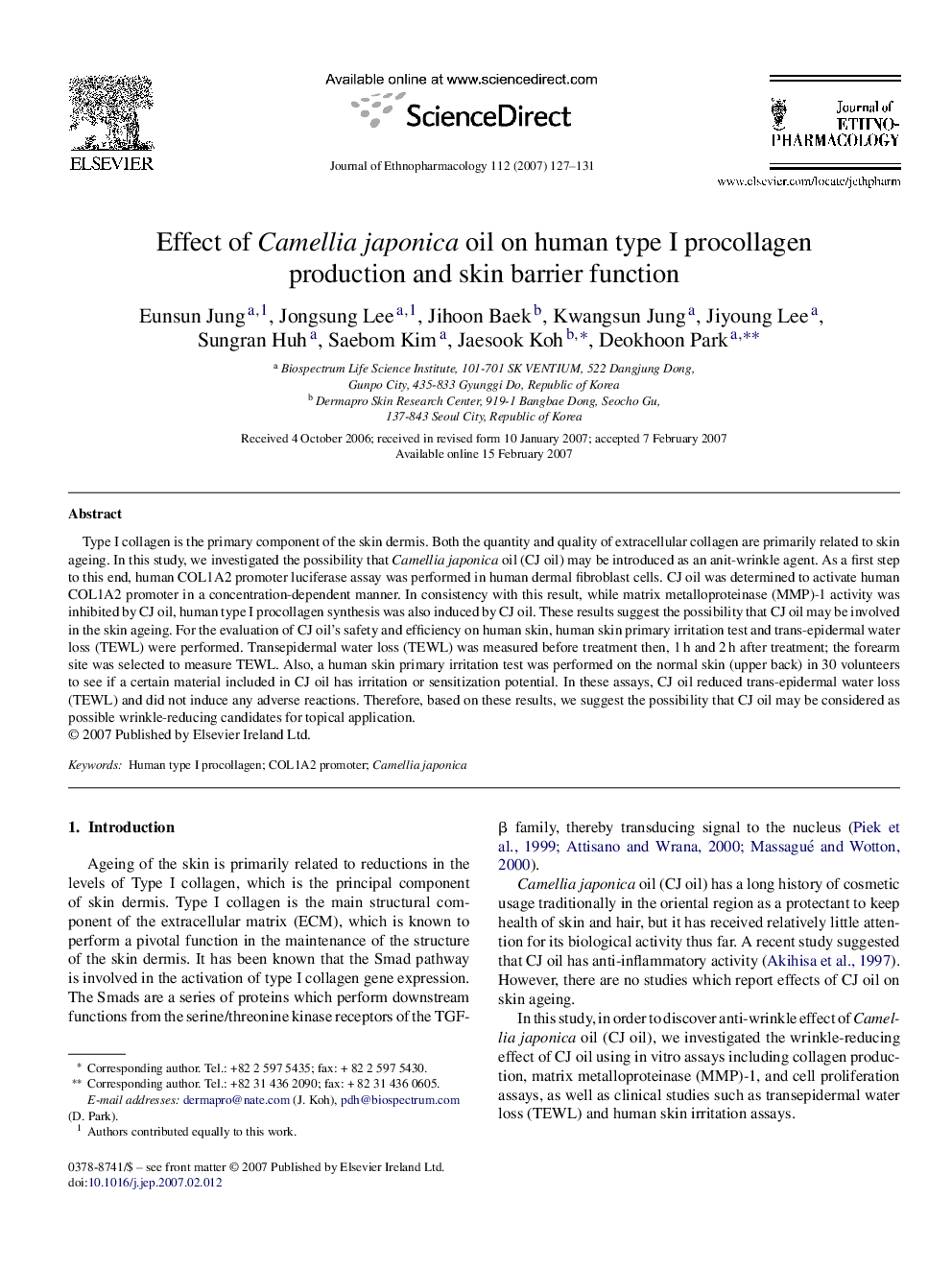| Article ID | Journal | Published Year | Pages | File Type |
|---|---|---|---|---|
| 2546921 | Journal of Ethnopharmacology | 2007 | 5 Pages |
Type I collagen is the primary component of the skin dermis. Both the quantity and quality of extracellular collagen are primarily related to skin ageing. In this study, we investigated the possibility that Camellia japonica oil (CJ oil) may be introduced as an anit-wrinkle agent. As a first step to this end, human COL1A2 promoter luciferase assay was performed in human dermal fibroblast cells. CJ oil was determined to activate human COL1A2 promoter in a concentration-dependent manner. In consistency with this result, while matrix metalloproteinase (MMP)-1 activity was inhibited by CJ oil, human type I procollagen synthesis was also induced by CJ oil. These results suggest the possibility that CJ oil may be involved in the skin ageing. For the evaluation of CJ oil's safety and efficiency on human skin, human skin primary irritation test and trans-epidermal water loss (TEWL) were performed. Transepidermal water loss (TEWL) was measured before treatment then, 1 h and 2 h after treatment; the forearm site was selected to measure TEWL. Also, a human skin primary irritation test was performed on the normal skin (upper back) in 30 volunteers to see if a certain material included in CJ oil has irritation or sensitization potential. In these assays, CJ oil reduced trans-epidermal water loss (TEWL) and did not induce any adverse reactions. Therefore, based on these results, we suggest the possibility that CJ oil may be considered as possible wrinkle-reducing candidates for topical application.
